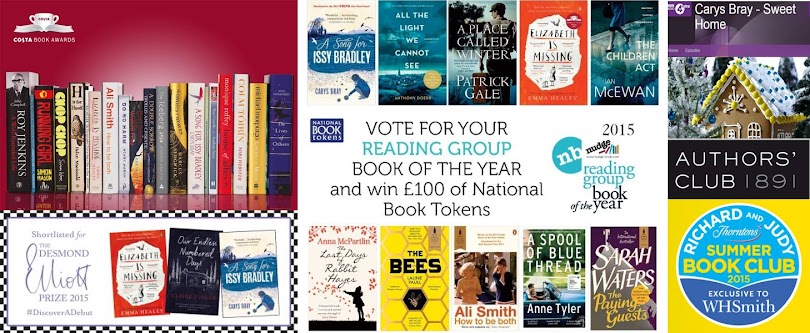 A few weeks ago I entered a Twitter draw to win a copy of Caroline Smailes' novel The Drowning of Arthur Braxton and I won - hurray! The book arrived and I didn't plan to read it straight away, but I glanced at the cover, scanned the first page and changed my mind. I read the book in twenty-four hours and I'm still thinking about it nearly two weeks later.
A few weeks ago I entered a Twitter draw to win a copy of Caroline Smailes' novel The Drowning of Arthur Braxton and I won - hurray! The book arrived and I didn't plan to read it straight away, but I glanced at the cover, scanned the first page and changed my mind. I read the book in twenty-four hours and I'm still thinking about it nearly two weeks later.The Oracle used to be a public swimming baths, then I'm sure my mum said it was run by some weird folk who did mad stuff in the water before the council closed it down. The building's been around over a hundred years and people used to go mad for all the stained-glass and mosaics inside. But that was when people cared 'bout old stuff, they don't seem to care so much these days.
The Drowning of Arthur Braxton is a novel of contrasts. Smailes employs stark realism and magic in an urban fairy tale that's centred around The Oracle, a place of grandeur and decay; healing and sickness; safety and death.
The Oracle's been shut for years, I mean before I was born. It's all tired-looking and crumbling, but even I can see that there's something 'bout it that's special.
The narrative moves between times and perspectives and is occasionally interrupted by weather forecasts, travel news and missing person reports. I really enjoyed this layering of story and the way it encourages the reader to piece things together. I was particularly interested in Delphina's sections which are written as script. They reminded me of ancient theatre and the inevitability of tragedy, and I read them with a growing sense of foreboding.
The adults in this story are feckless and/or impotent - certainly culpable: Laurel's irresponsible mother, Arthur's neglectful parents, dastardly (and bastardly) Martin, Silver who can see the future but is powerless to change it, and twins Kester and Pollock who heckle from the sidelines, like the curmudgeonly old men in The Muppets (or perhaps the chorus in a Greek tragedy). The young people are likeable and 'relatable' (as young people like to say!). Laurel is trapped in an eternal adolescence, Delphina is simultaneously cosseted and imprisoned, and then there's Arthur Braxton himself, world-weary and yet painfully naive.
There were times when Arthur frustrated me. He's not particularly bright and although his artlessness is largely endearing, there were moments when I felt like shouting, 'COME ON Arthur!' and 'Just THINK about it, Arthur!' But I was always rooting for him, and there was *so* much about this book to love; the decrepit seaside setting, the terrible weather (the way the storms and rain inhabit both the background and foreground of the novel), the gritty realism, the magic, the freshness, the strangeness, and the way the story and the characters haunted me afterwards. I felt safe throughout this novel - I knew I was in good hands; with each change of voice and structure I remained confident in Smailes' ability to lead things to a satisfying conclusion. And that's exactly what she did.
[This was a hard review to write because The Drowning of Arthur Braxton isn't like anything I've read before - that's a good thing, and it's almost certainly why I'm still thinking about it.]






